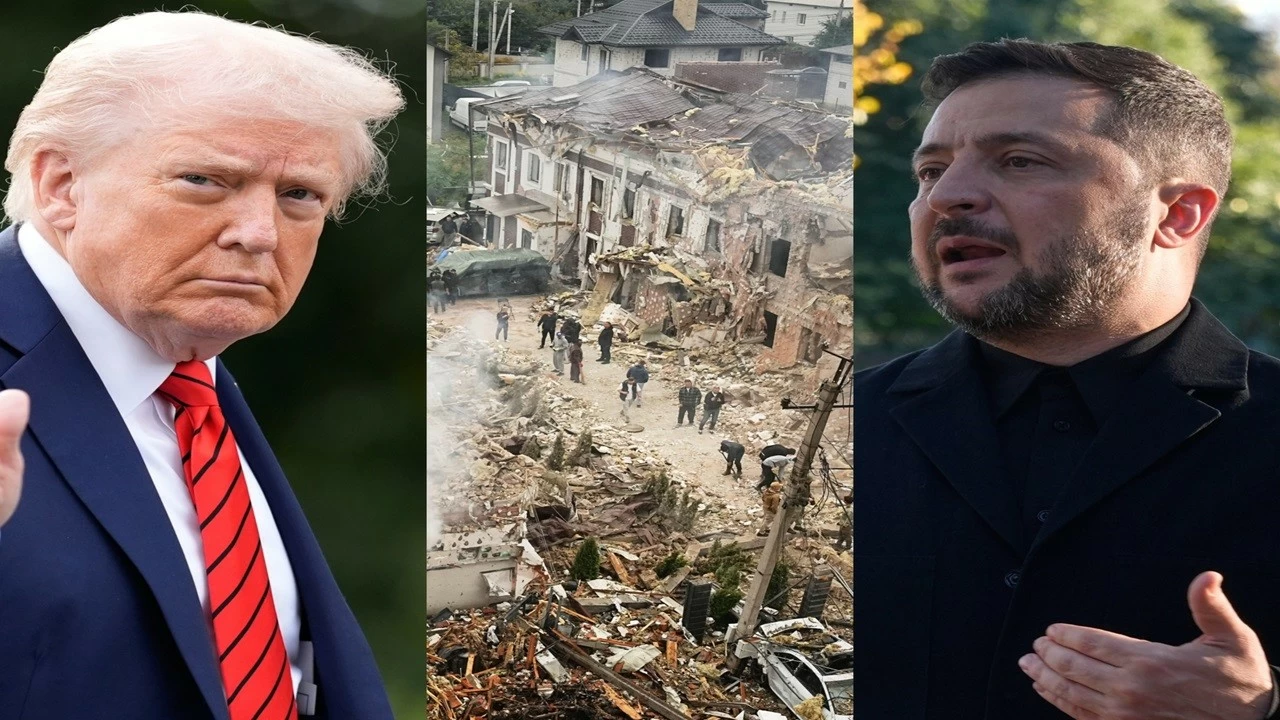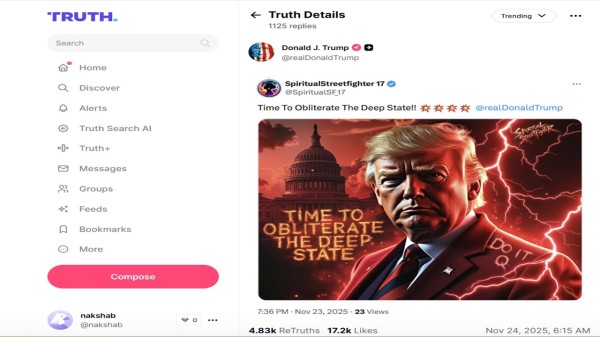

By signing in or creating an account, you agree with Associated Broadcasting Company's Terms & Conditions and Privacy Policy.


By signing in or creating an account, you agree with Associated Broadcasting Company's Terms & Conditions and Privacy Policy.

New Delhi: Amid challenges in stopping the Russia–Ukraine war, a significant post by US President Donald Trump on Sunday has drawn global attention.
Trump put up the post on social media, advocating the dismantling of the American Deep State. According to Trump, the American Deep State is not allowing a pause in the Russia–Ukraine war. It was regarding the Deep State that TV9 had asked Trump a question this year at the White House.

In 1997, the term Deep State was first used in English. It was originally coined outside the US in reference to the Turkish government. The word stems from the Turkish phrase derin devlet, which literally means 'Deep State'. Throughout its history, Turkey has been known for authoritarian governments and fighting resistance and dissident groups seeking control.
The term 'Deep State' is used to describe a concept that an unseen, unelected network of powerful players, including top bureaucrats, intelligence and military officials, and influential corporate or interest groups, secretly influences key decisions, irrespective of the elected leadership or government.
Deep State actors are not elected lawmakers. Instead, they are thought to hold a sway over the military, senior congressional leaders, and crucial government functions. They are not well-known or visible to the public, and are believed to wield power covertly. They work behind the scenes, shaping policies and outcomes. Such 'Deep State' structures have been reported in several nations with authoritarian regimes, including Turkey and Egypt.
In the US, during Trump’s presidency, both in the first and second term, many in his administration have alleged that a “Deep State” was working secretly against him. They have also claimed that some bureaucratic and intelligence officials tried to undermine his agenda and tied up with the media to tarnish his public image.
One of Trump’s key themes, during the US presidential campaign in 2024, was the need to dismantle the ‘Deep State’. This was reflection of his conviction that some people within the bureaucracy, especially the intelligence agencies, the State Department, and the military, were bent on derailing his agenda.
As per a CREW analysis of Trump’s Truth Social posts from January 1, 2023 to April 1, 2024, the US President mentioned dismantling the “Deep State” 56 times.
His recent post on Deep State comes in the wake of little progress made on Russia-Ukraine war. His meetings with both Russian and Ukraine leaders -- Vladimir Putin and Volodymyr Zelenskyy -- have brought no results and the pressure on him to broker a truce was building from within his party. Many analysts say this mounting pressure has pushed him to lean more on the ‘Deep State’ narrative to shift public attention and rally support for his backers.












